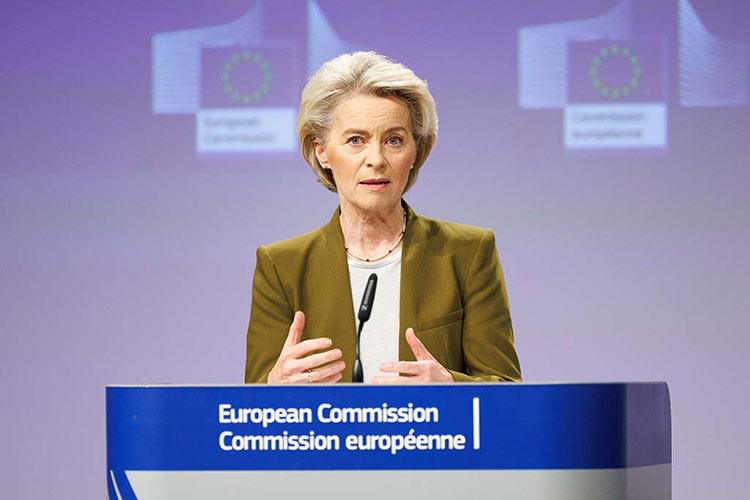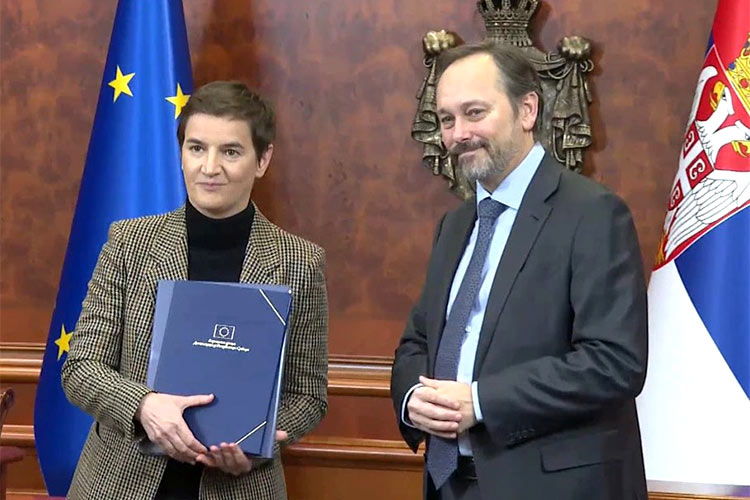The European Commission has adopted the 2023 Enlargement Package, providing a detailed assessment of the progress and current state of Albania, Bosnia and Herzegovina, Kosovo, Montenegro, North Macedonia, Serbia, Turkey, and for the first time, Ukraine, the Republic of Moldova, and Georgia on their path to European Union accession.
This report pays particular attention to the implementation of fundamental reforms, and offers clear guidelines on the reform priorities ahead for the candidate countries, as announced by the EU Delegation in Serbia. Accession remains a merit-based process, reliant on each nation’s objective advancements.
Regarding Serbia, the report states that the country continued to implement EU accession-related reforms, particularly in the realm of the rule of law.
The European Commission reminds that Serbia has begun enforcing constitutional changes made in 2022 to strengthen judicial independence and has adopted new media legislation, which could significantly enhance the regulatory environment. Nonetheless, further amendments are needed to fully align with EU acquis and standards.
Serbia must also prioritize aligning with the EU’s common foreign and security policy, including restrictive measures and positions on Russia. Continued effort and political commitment are required to advance reforms in the rule of law. The Commission recognizes Serbia has technically met the criteria to commence negotiations on Cluster 3 (Competitive and Inclusive Growth).
Furthermore, Serbia is expected to fully cooperate and take necessary steps to establish accountability for the violent attack on Kosovo’s police on September 24 and the assault on KFOR on May 29. With regard to normalizing relations with Kosovo, while agreements have been reached through EU-mediated dialogue, both Serbia and Kosovo are yet to begin implementing their commitments, which are binding and pivotal for their European journeys.

Emanuele Giaufret, Head of the EU Delegation in Serbia, upon presenting the 2023 EC report to Prime Minister Ana Brnabić, emphasized that expansion is at the core of the Commission’s decisions, with the opportunity ripe for taking.
“This package is not just another yearly update; it’s different, historic. The Commission has recommended commencing negotiations with two countries, Ukraine and Moldova, under certain conditions, and granting candidate status to Georgia along with this Growth Plan for the Western Balkans,” Giaufret stated.
Given the achievements of Ukraine and Moldova, and their ongoing reform efforts, the Commission suggests that the Council initiate accession talks with both countries. Furthermore, it recommends the Council adopts the negotiation frameworks once Ukraine and Moldova enact specific key measures, readying to inform the Council of progress by March 2024.

For Georgia, in light of its results, the Commission proposes that the Council grant it candidate status, contingent on further steps being taken.
In the case of Bosnia and Herzegovina, the Commission recommends the commencement of accession negotiations once the necessary degree of compliance with membership criteria is achieved. The country now needs to further efforts to meet the key priorities outlined in the Commission’s 2019 Opinion on its membership application.
Progress will be reported to the Council by March 2024 at the latest.
“Enlargement policy is of vital importance to the European Union. Completing the Union is our natural horizon and holds strong economic and geopolitical logic at this moment. Previous expansions have demonstrated substantial benefits for both the accession countries and the EU. We all win,” stated European Commission President Ursula von der Leyen.
Photo: audiovisual.ec.europa.eu